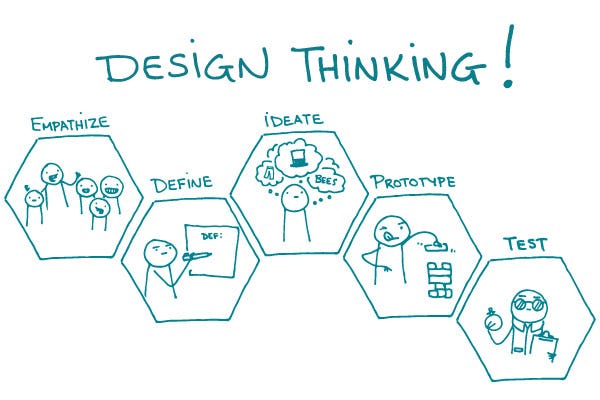Senior Capstone Project: Guide
Community Research
-
See the Research ExpertsWe may not know everything— but we will not rest until we find the answers at Webb Library
United States

Global

Tools
-
What is Primary Research and How do I get Started?With some careful planning, primary research can be done by anyone, even students new to writing at the university level. The information provided on this page will help you get started.
Topic Brainstorm -
Community Problem Solvers
"Real community problems are likely to be complex."
Can't Think of a Problem to Solve?
Rather than aim for a complete problem list, here are some criteria you may consider when identifying community problems:
- The problem occurs too frequently (frequency)
- The problem has lasted for a while (duration)
- The problem affects many people (scope, or range)
- The problem is disrupting to personal or community life, and possibly intense (severity)
- The problem deprives people of legal or moral rights (equity)
- The issue is perceived as a problem (perception)
[From: Center for Community Health and Development at the University of Kansas. ]
Some examples
Tennessee Education
Tennessee School Vouchers - https://tn.chalkbeat.org/2022/9/19/23362053/school-voucher-tennessee-memphis-nashville-lawsuit-arguments
Tennessee Charter Schools - https://apnews.com/article/education-michigan-tennessee-nashville-school-boards-f186007e024fb3fdacc03b0310817381
Tennessee Book bans and legislation - https://tn.chalkbeat.org/2022/9/1/23331530/school-library-law-stresses-teachers-classroom-books
Tennessee Climate, Environment, and Sustainability
- New Study about Tennessee and Climate Change - https://fox17.com/news/local/
climate-change-study-finds- big-changes-for-tennessee- cities-in-2080 - Central Tennessee Regional Solid Waste Planning Board Passes Resolution #3 - https://www.wgnsradio.com/
article/74508/central- tennessee-regional-solid- waste-planning-board-passes- resolution-3 - McMinnville -- How a push to close Middle Point landfill could impact trash costs in Nashville - https://www.tennessean.com/
story/news/local/davidson/ 2022/04/13/proposal-could- block-davidson-county-using- middle-point-landfill- rutherford-county/7280119001/ - Tullahoma -- CFC Recycling expands operations - https://www.tullahomanews.
com/news/local/cfc-recycling- expands-operations/article_ cfbc440e-546b-11ec-9bc1- af83b43793b7.html - Wartrace water woes affecting large area - https://www.t-g.com/stories/wartrace-water-woes-affecting-large-area,67716
- The high cost of meth in Bedford - https://www.t-g.com/stories/the-high-cost-of-meth-in-bedford-county,68447
- The local EMA director talks about preparedness - https://www.t-g.com/stories/local-ema-directortalks-preparedness,68446
Projects that kids and teens have worked on that made a difference.
Marley Dias [1000 Black Girl Books] - https://www.marleydias.com/
Amina Anekwe [#EndPeriodPoverty campaign] - https://grassrootscommunityfoundation.org/supergirl-amina-news/
Global Energy Costs/ Crisis
Possible solutions for European energy crisis - Fundraising for solar power kits for the poor in Germany and Ukraine
Global Warming
Food Waste
Student Debt
Reparations
Electronic Waste
Mass Incarceration
Voting Access
The Electoral College
Media Consolidation
Campaign Finance
Community Research
Emerging Voices: Find Your Voice, Use your Voice!
Examine a specific, preferably local or community-related, issue
Develop a practical, viable solution for addressing the issue in order to create change within the community.
Questions to ask
- How do I define community?
- What communities do I belong to?
- What are the needs of my community?
The Webb School encourages you not to be a spectator. The Emerging Voices program urges students to find their voices. So, let’s take a hand in the game and use our voices to affect change.
Your goal in the senior research project is to identify a specific problem within a community and argue for a potential solution for that problem.
The problem must be sufficiently significant to warrant the attention of a given community. However, it should also be addressable -- at least in some small part -- in the scope of this project.
See here and here for recent examples of young people doing exactly this kind of work. Granted, the scale of these projects is probably a bit larger than we might accomplish this quarter, but they should serve as inspiration.
Be inventive and seek original solutions to real-world problems. Your ability to solve problems, big and small, will be immensely valuable at the personal, academic, and professional level. So, too, will your ability to construct effective proposals such as the one we’ll be writing this quarter.
25 Ideas for doing Community or local Research
Primary Research - What is Primary Research and How do I get Started?
-
Interview an Expert or Professional face to face
-
Interview an Expert or Professional via phone, Skype, OR email
-
Visit a Museum
-
Tour a Factory or Business
-
Volunteer at an organization
-
Attend a meeting or service [church, brotherhood, fraternity, society, club]
-
Shadow an expert [in person or online]
-
Draw insight from an Internship or Externship
-
Volunteer or attend a Camp or Retreat
-
Attend a cultural festival [PowWow, Storytelling festival, African Street Festival, Nashville Greek Festival, etc.]
-
Participate in an event [charity or community]
-
Curation - Creating a collection of resources [physical or online]
-
Following Twitter Feeds or Blogs - journaling your impressions
-
Starting a Twitter Feed or blog about your topic
-
Keeping a research journal
-
Video Journal an experience
-
Conduct an Experiment
-
Test Computer Code
-
Create an App to address a need
-
Chart a Contrast/Comparison
-
Creating an “Infographic” to include in your presentation
-
Questionnaires to a small group of people
-
Survey a group [survey must be approved by Teacher and Lead Adviser]
-
Create a Statistical survey
-
Opinion Poll within a group or organization
Articles
The Tennessean - Full-text articles from The Tennessean newspaper. Provides Nashville and Middle Tennessee regional coverage.
Tennessee Data Sources
US Data Sources
World Data Sources
-
World Health Organization | Global Health Observatory The GHO data repository is WHO's gateway to health-related statistics for its 194 Member States. It provides access to over 1000 indicators on priority health topics including mortality and burden of diseases, the Millennium Development Goals (child nutrition, child health, maternal and reproductive health, immunization, HIV/AIDS, tuberculosis, malaria, neglected diseases, water, and sanitation), non-communicable diseases and risk factors, epidemic-prone diseases, health systems, environmental health, violence and injuries, equity among others
Newspapers
See the Library Staff for print copies of the Shelbyville Times Gazette and Murfreesboro Daily News Journal
-
The TennesseanThe Tennessean - Full-text articles from The Tennessean newspaper. Provides Nashville and Middle Tennessee regional coverage.











